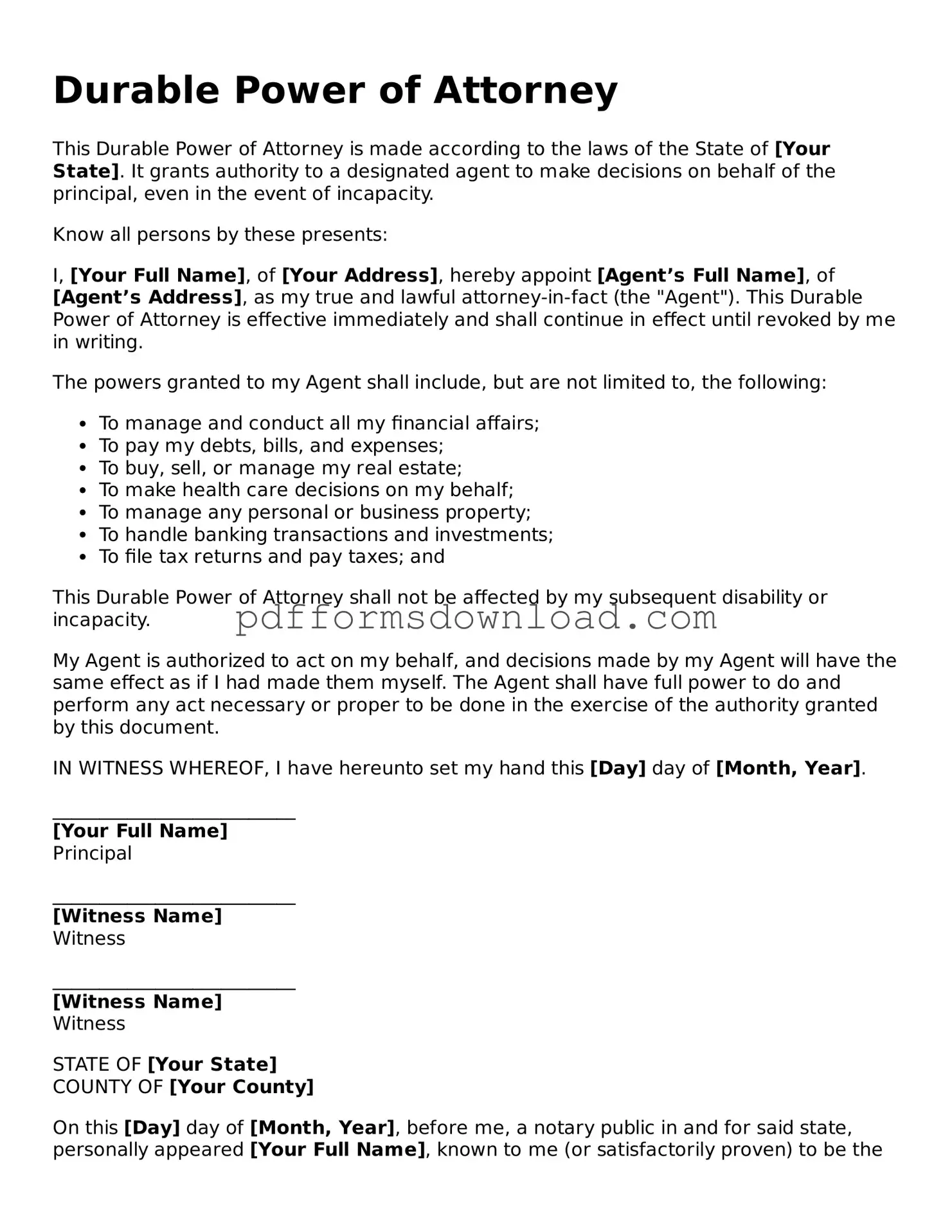What is a Durable Power of Attorney?
A Durable Power of Attorney (DPOA) is a legal document that allows an individual, known as the principal, to appoint someone else, called the agent or attorney-in-fact, to make decisions on their behalf. This authority remains effective even if the principal becomes incapacitated.
What are the main purposes of a Durable Power of Attorney?
The primary purpose of a DPOA is to ensure that financial and legal decisions can be made for the principal when they are unable to do so themselves. This can include managing bank accounts, paying bills, and handling real estate transactions.
Who can be appointed as an agent in a Durable Power of Attorney?
Any competent adult can be designated as an agent. This can be a family member, friend, or professional, such as an attorney or accountant. It is crucial to choose someone trustworthy, as they will have significant control over the principal's affairs.
How does a Durable Power of Attorney differ from a regular Power of Attorney?
The main difference lies in the durability of the authority granted. A regular Power of Attorney typically becomes invalid if the principal becomes incapacitated, whereas a Durable Power of Attorney remains in effect during such circumstances.
What are the limitations of a Durable Power of Attorney?
While a DPOA grants broad powers, it does not allow the agent to make healthcare decisions unless specifically stated. Additionally, the agent cannot use the principal's assets for personal benefit unless authorized. It is important to clearly outline the powers granted in the document.
Do I need to have a lawyer to create a Durable Power of Attorney?
While it is not mandatory to have a lawyer, seeking legal advice is often beneficial. A lawyer can help ensure that the document meets state requirements and accurately reflects the principal's wishes.
Can I revoke a Durable Power of Attorney?
Yes, the principal can revoke a DPOA at any time, as long as they are mentally competent. This can be done by creating a new DPOA or by providing a written notice of revocation to the agent and any relevant institutions.
What should I consider before signing a Durable Power of Attorney?
Consider the trustworthiness and capability of the chosen agent, as well as the specific powers you wish to grant. It is also important to discuss your wishes with the agent and ensure they understand their responsibilities.
Is a Durable Power of Attorney valid in all states?
A Durable Power of Attorney is generally recognized across the United States, but specific laws and requirements can vary by state. It is advisable to check local regulations to ensure compliance and validity.

